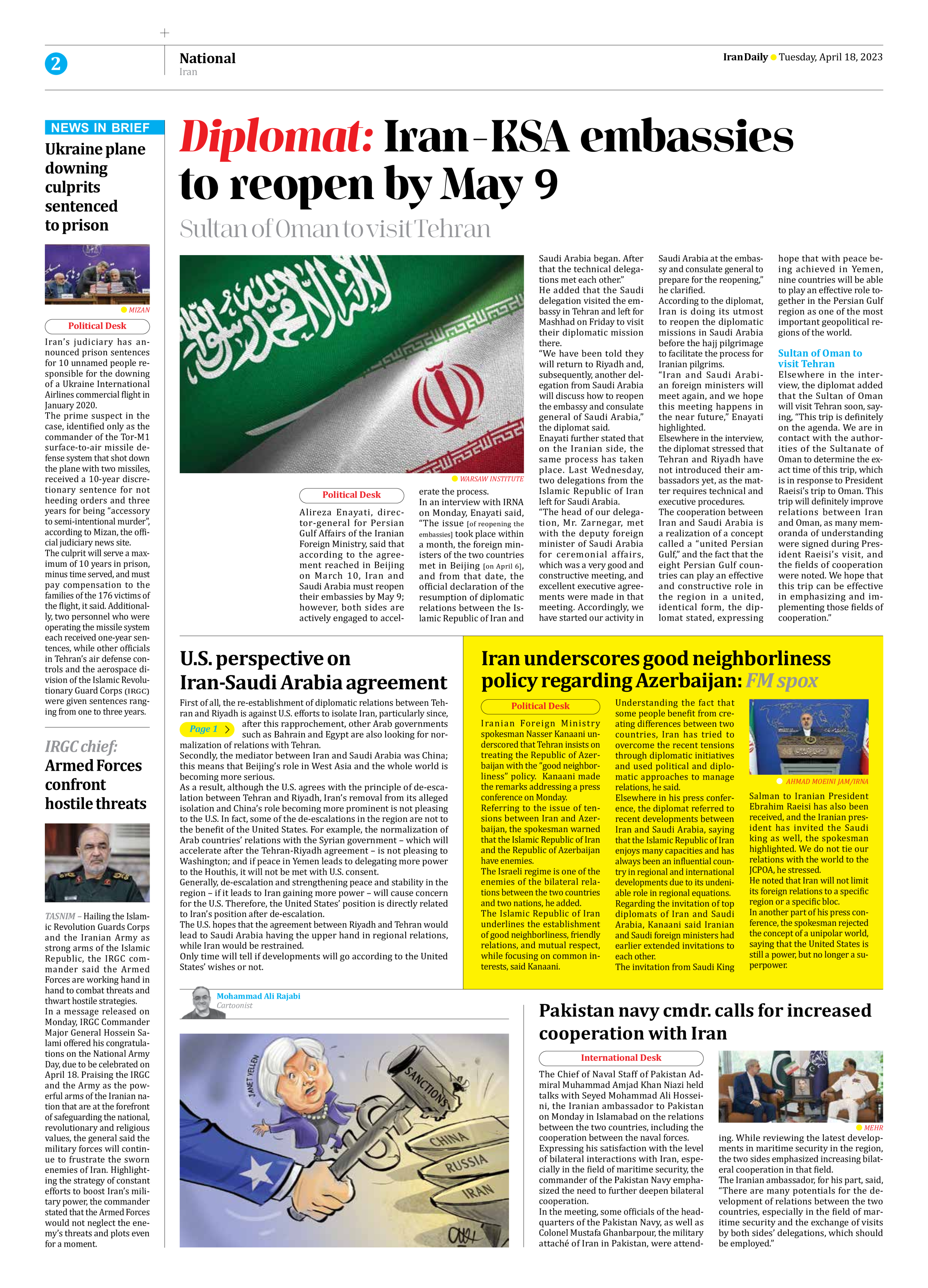
U.S. perspective on Iran-Saudi Arabia agreement
Page 1
First of all, the re-establishment of diplomatic relations between Tehran and Riyadh is against U.S. efforts to isolate Iran, particularly since, after this rapprochement, other Arab governments such as Bahrain and Egypt are also looking for normalization of relations with Tehran.
Secondly, the mediator between Iran and Saudi Arabia was China; this means that Beijing’s role in West Asia and the whole world is becoming more serious.
As a result, although the U.S. agrees with the principle of de-escalation between Tehran and Riyadh, Iran’s removal from its alleged isolation and China’s role becoming more prominent is not pleasing to the U.S. In fact, some of the de-escalations in the region are not to the benefit of the United States. For example, the normalization of Arab countries’ relations with the Syrian government – which will accelerate after the Tehran-Riyadh agreement – is not pleasing to Washington; and if peace in Yemen leads to delegating more power to the Houthis, it will not be met with U.S. consent.
Generally, de-escalation and strengthening peace and stability in the region – if it leads to Iran gaining more power – will cause concern for the U.S. Therefore, the United States’ position is directly related to Iran’s position after de-escalation.
The U.S. hopes that the agreement between Riyadh and Tehran would lead to Saudi Arabia having the upper hand in regional relations, while Iran would be restrained.
Only time will tell if developments will go according to the United States’ wishes or not.







